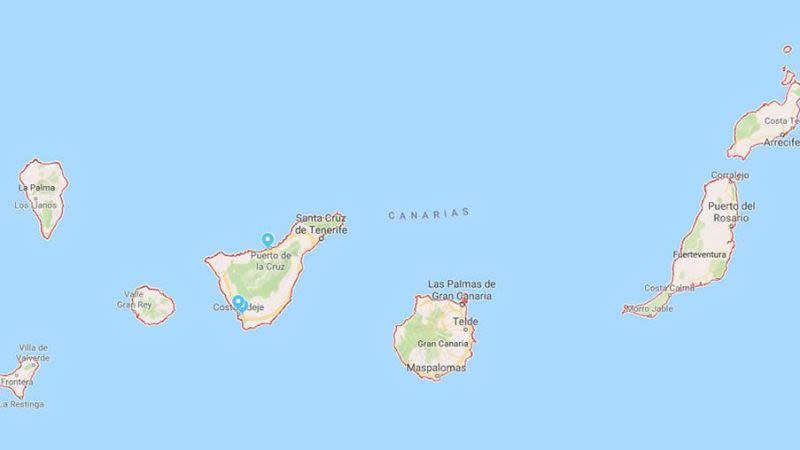Amidst the azure embrace of the Atlantic and beneath the watchful gaze of timeworn mountains lie the Canary Islands, a Spanish archipelago whispering tales of resistance against the relentless waves of mass tourism. Meanwhile, in the north, within the verdant valleys and rugged landscapes of the Basque Country, a question lingers in the air, youthful and vibrant, touching the very identity of its people: is the spirit of independence among young Basques as fervent as the generations before them? These narratives, seemingly disparate, are threads of a larger tapestry that speaks to the changing tides within Spain, a country renowned for its rich history, dynamic cultures, and complex social fabric.
Our journey into the heart of Spain uncovers the nuanced perspectives of the Canarians, whose voices echo a profound desire to redefine their relationship with tourists, seeking a harmonious balance that honors both their environment and economy. Simultaneously, we venture into the Basque Country, where the aspirations of its young population hint at evolving ideologies and a reimagining of their future within or apart from Spain.
Join us as we delve into these compelling stories, exploring the intersections of culture, politics, and identity. Through conversations with locals, insights from experts, and reflections on Spain’s scenic backdrop, we aim to illuminate the diverse viewpoints and aspirations that shape these communities’ responses to contemporary challenges. This exploration is not just a tale of two regions but a mosaic of the resilience, adaptability, and evolving dreams of a nation standing at the crossroads of tradition and change.
Balancing Act: The Canary Islands’ Stance on Sustainable Tourism
The emerald-green waters and volcanic landscapes of the Canary Islands have long been a beacon for travelers seeking sun and serenity. However, this paradise faces the challenge of preserving its natural beauty while catering to the influx of tourists. In a groundbreaking move, authorities have begun steering the islands away from the pitfalls of mass tourism. Their strategy? A focus on sustainable travel, aiming to ensure that tourism benefits the economy without compromising the archipelago’s ecological balance. This includes promoting accommodations that adhere to green building standards, encouraging local food sourcing, and investing in renewable energy projects. Such initiatives not only aim to protect the islands’ diverse ecosystems but also to elevate the quality of the visitor experience, emphasizing meaningful connections with the local culture and environment.
Initiatives and Impacts
- Development of eco-certified hotels that minimize carbon footprints and promote energy efficiency.
- Enhancement of public transportation networks, including electric buses and bike-sharing schemes, to reduce vehicular pollution.
- Creation of awareness campaigns to educate tourists on responsible behavior, such as respecting wildlife and reducing plastic use.
- Implementation of visitor caps at the most vulnerable natural sites to prevent overcrowding and degradation.
The Canary Islands’ pioneering approach serves as a testament to the fact that it is possible to welcome visitors without sacrificing the environment or local way of life. By adopting these sustainable practices, the archipelago not only secures its position as a premier eco-friendly destination but also inspires other regions to rethink their tourism models. As the world faces the pressing need for sustainability, the Canary Islands shine as a beacon of hope, demonstrating that the delicate balance between welcoming tourists and preserving natural heritage can indeed be achieved.
The Pulse of Youth: Exploring Basque Independence Desires
In the verdant valleys and rugged mountains of the Basque Country, a complex tapestry of culture, identity, and political longing weaves its story into the modern fabric of Spain. The voices of the youth, often echoed through bustling pintxo bars, university campuses, and vibrant demonstrations, offer a nuanced perspective on the concept of independence. While historical grievances and a strong sense of cultural identity fuel a desire for greater autonomy, a new generation is shaping its aspirations within the contours of a globally connected world. This duality presents a fascinating insight into the contemporary Basque consciousness, where tradition and progress intersect.
| Factor | Influence on Independence Sentiment |
|---|---|
| Cultural Identity | Strong |
| Economic Considerations | Mixed |
| Global Connectivity | Growing |
| Historical Grievances | Varied |
| Political Representation | Important |
Amidst this backdrop, the sentiment among young Basques is not monolithic; it is a vibrant spectrum ranging from fervent nationalism to pragmatic Europeanism. Discussions often revolve around how autonomy can coexist with interdependence, especially within the European Union framework. The digital era has also ushered in new forums for dialogue, allowing Basque youth to engage in debates that transcend geographical borders, further complicating the traditional independence narrative. It is within these discussions that the pulse of Basque youth beats, reflecting a deep-rooted heritage while simultaneously navigating the opportunities and challenges of a borderless Europe.
Steering the Future: Recommendations for Sustaining Culture and Environment
In addressing the concerns over rapidly expanding tourism and its impacts on the delicate socio-environmental balance of the Canary Islands, local communities and policy-makers are voicing strong recommendations aimed at preserving both their culture and natural environment. Central to these recommendations is the concept of sustainable tourism, which emphasizes quality over quantity. This approach encourages the development of eco-friendly accommodations and the promotion of activities that allow for cultural exchange without overwhelming local resources. Regulatory measures are also being considered, such as implementing a cap on the number of tourists during peak seasons and increasing the taxes on businesses that benefit from mass tourism. These funds could then be redirected towards conservation efforts and supporting local artisans.
Meanwhile, in the Basque Country, the discussion about independence among the youth is intertwined with a broader conversation about identity and autonomy. To sustain and nurture Basque culture while navigating these aspirations, several strategies are being proposed. Firstly, there is a push for **educational reforms** that incorporate more aspects of Basque history and language into the curriculum, thereby reinforcing cultural identity from a young age. Additionally, there’s a call for boosting local economies through **support of small businesses** and **cooperative models** that are seen as more in tune with traditional Basque values. These recommendations are not only seen as steps towards greater autonomy but are also believed to contribute to a more vibrant, resilient local culture.
Evolving Identities: Navigating the Modern Basque and Canarian Spirit
The currents of change are sweeping across the Canary Islands, where a robust dialogue on the future of tourism is underway. Residents, increasingly concerned about the environmental and social impacts of mass tourism, are advocating for **sustainable development** strategies that preserve the archipelago’s unique natural and cultural heritage. This isn’t merely a reactionary stance against the influx of visitors but a forward-thinking approach to ensure the islands remain vibrant and livable for generations to come. Proposals being discussed include limiting the number of annual visitors, promoting eco-tourism, and diversifying the economy beyond the tourism sector to include green technologies and renewable energies. The goal is clear: to reimagine the Canarian spirit in a way that respects the islands’ ecosystems and enriches the lives of its inhabitants.
In the Basque Country, the question of independence stirs deep emotions and complex debates amongst the youth. While echoes of the past shape visions of the future, it’s evident that young Basques are grappling with the dual desire to maintain their distinct identity while engaging dynamically with the wider world. The narrative is no longer monolithic; opinions on independence vary widely, from those who see it as the only path to preserving the Basque culture and language, to others who advocate for stronger autonomy within a united Spain. What unites them, however, is a profound commitment to social justice, environmental sustainability, and technological innovation. This generation is not waiting for change; they are actively shaping a modern Basque identity that holds space for tradition and progress alike.
| Canary Islands Focus Areas | Basque Country Key Interests |
|---|---|
| Eco-Tourism Development | Cultural Preservation |
| Renewable Energy Projects | Social Justice Initiatives |
| Visitor Number Regulation | Technological Advancement |
| Economic Diversification | Political Autonomy Discussions |
These evolving identities within the Canary Islands and the Basque Country highlight a broader national conversation about sustainability, autonomy, and cultural preservation. As Spain navigates the complexities of regionalism versus national unity, the Canarian and Basque spirits symbolize this journey of balancing local desires with global realities.
Closing Remarks
In the tapestry of Spain’s diverse and vibrant culture, the threads of the Canary Islands and the Basque Country weave tales of resilience, identity, and future aspirations. As the sun sets on the picturesque landscapes of the Canaries, the islands voice a resolute no to the encroachments of mass tourism, choosing instead to preserve the fragile beauty bestowed upon them by nature. Far to the north, in the rolling hills and bustling cities of the Basque Country, the spirit of independence among the youth whispers questions of identity, autonomy, and the path forward in the mosaic of Spain’s complex history.
As we pull back the curtain on these two distinct regions, the stories that emerge are not just about the challenges they face but also about their hopes, dreams, and the relentless pursuit of a future that honors both their heritage and their ambitions. Whether it’s in the serene embrace of the Canary Islands, standing guard against the tide of commercialism, or in the vibrant heart of the Basque Country, where questions of independence spark conversations on identity and autonomy, both regions reflect the broader narrative of Spain’s journey towards understanding and balancing the diverse needs and desires of its people.
In closing, the canvas of Spain is vast and varied, a testament to its rich cultural heritage and the resilience of its communities. The Canaries and the Basque Country, with their unique challenges and aspirations, remind us of the importance of listening to the many voices that make up the symphony of a nation. As we ponder their stories, we are invited to consider the delicate balance between progress and preservation, identity, and inclusivity, reflecting the universal quest for a place where history and modernity walk hand in hand towards a shared horizon.



